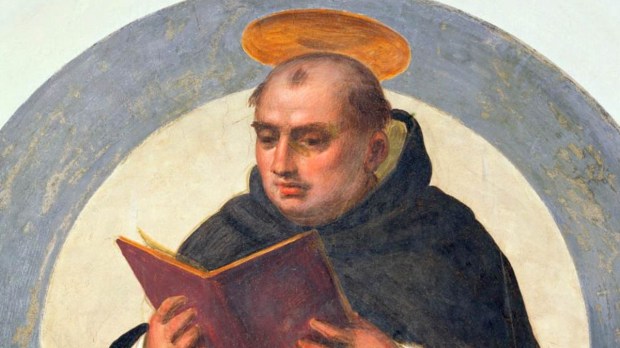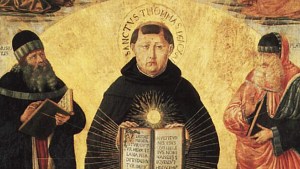St. Thomas Aquinas was highly regarded for this sanctity and intelligence during his life, but was more widely appreciated after his death. It didn’t take too long for the Church to hold-up St. Thomas as an example to follow and to canonize him a saint.
He was officially canonized on July 18, 1323, by Pope John XXII, only 49 years after his death.
Vatican News reported that Pope Francis wrote a letter in Latin commemorating Aquinas’ canonization, “describing him as ‘a man of the Church,’ priest and doctor who shared his “great spiritual and human wisdom” through prayers and writings.“
Pope Francis recalled his influence and the importance of his writings and example.
He wrote many works and taught countless subjects, and was well qualified in the philosophical and theological disciplines. He manifested righteous intelligence and lucidity, and while reverently investigating the divine mysteries with reason, he contemplated them with fervent faith.
Pope Benedict XVI summarized St. Thomas Aquinas’ teaching in a general audience in 2010, recalling a popular story from the saint’s life.
The life and teaching of St Thomas Aquinas could be summed up in an episode passed down by his ancient biographers. While, as was his wont, the Saint was praying before the Crucifix in the early morning in the chapel of St Nicholas in Naples, Domenico da Caserta, the church sacristan, overheard a conversation. Thomas was anxiously asking whether what he had written on the mysteries of the Christian faith was correct. And the Crucified One answered him: “You have spoken well of me, Thomas. What is your reward to be?” And the answer Thomas gave him was what we too, friends and disciples of Jesus, always want to tell him: “Nothing but Yourself, Lord!” (ibid., p. 320).
St. Thomas continues to influence both laity and clergy around the world, continuing to form how the Church functions even in the modern world.


